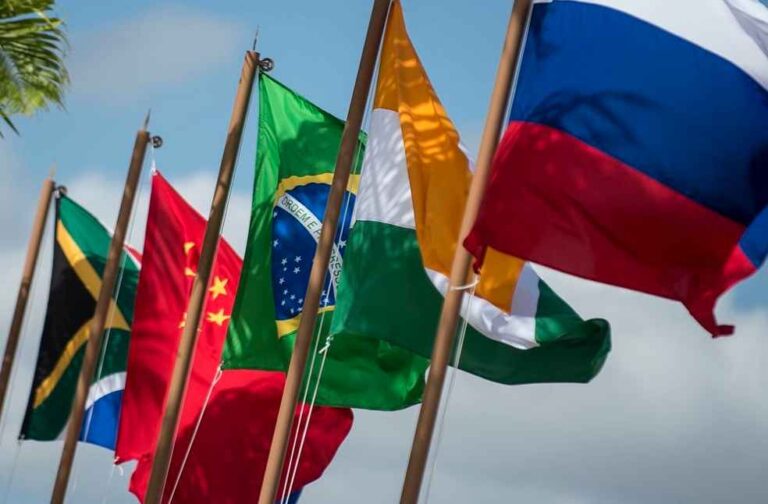Saudi Arabia and the United Arab Emirates (UAE) officially joined BRICS, marking a major move in the global economic sphere, particularly within the Middle East and North Africa (MENA) region. This expansion, effective from the start of 2024, also welcomes Egypt, Ethiopia, and Iran into the fold, multiplying the size of this influential economic coalition.
BRICS, initially an acronym for Brazil, Russia, India, China, and South Africa, was established in 2006. The group’s expansion doubles its membership and further enhances its global economic influence. The combined population of BRICS nations now covers over 40 percent of the world, wielding a 28 percent share of the global economy, equivalent to a staggering $26.5 trillion.
Argentina, having received an invitation, chose to decline membership. This decision highlights the adaptable and changeable characteristics of international alliances and relationships.

BRICS’ Role in Elevating Emerging Economies
BRICS stands as a powerful collective of developing economies, challenging the traditional Western hegemony in global affairs. The bloc has been pivotal in representing the interests of developing countries. A key milestone was the establishment of the New Development Bank in 2014, which has committed nearly $32 billion to development projects in emerging nations by the end of 2022.
Strategic Benefits for Saudi Arabia and UAE
The entry of Saudi Arabia and the UAE into BRICS is laden with economic and political implications. Ullas Rao from Edinburgh Business School at Heriot-Watt University in Dubai views this expansion as a boon amidst global hurdles. He highlighted the potential for growth through investments, trade, and commerce, buoyed by the substantial sovereign wealth funds of these nations. Projections from the Finance Ministry of Saudi Arabia and the Central Bank of the UAE forecast significant GDP growth in 2024.

This expansion presents new economic horizons for these countries, aligning with their strategies to diversify beyond oil. Gary Dugan from Dalma Capital expects Saudi Arabia and the UAE to benefit from favorable access to BRICS markets.
The move further expands their geopolitical standing, allowing them to balance Western alliances with new global partnerships. Ayham Kamel of Eurasia Group MENA highlights that the inclusion of Saudi Arabia, the UAE, Iran, and Egypt in BRICS necessitates political cooperation and boosts their global influence. Kamel notes their keenness to maintain ties with the West while broadening their international reach.
The inclusion of key MENA countries into BRICS signifies a critical juncture in global economic and political relations. This expansion not only reflects changing international alliances but also underscores the rising influence of emerging economies on the world stage.
GLOBAL ROUNDUP | UAE Stock Markets: A Year of Resilience and Hope



